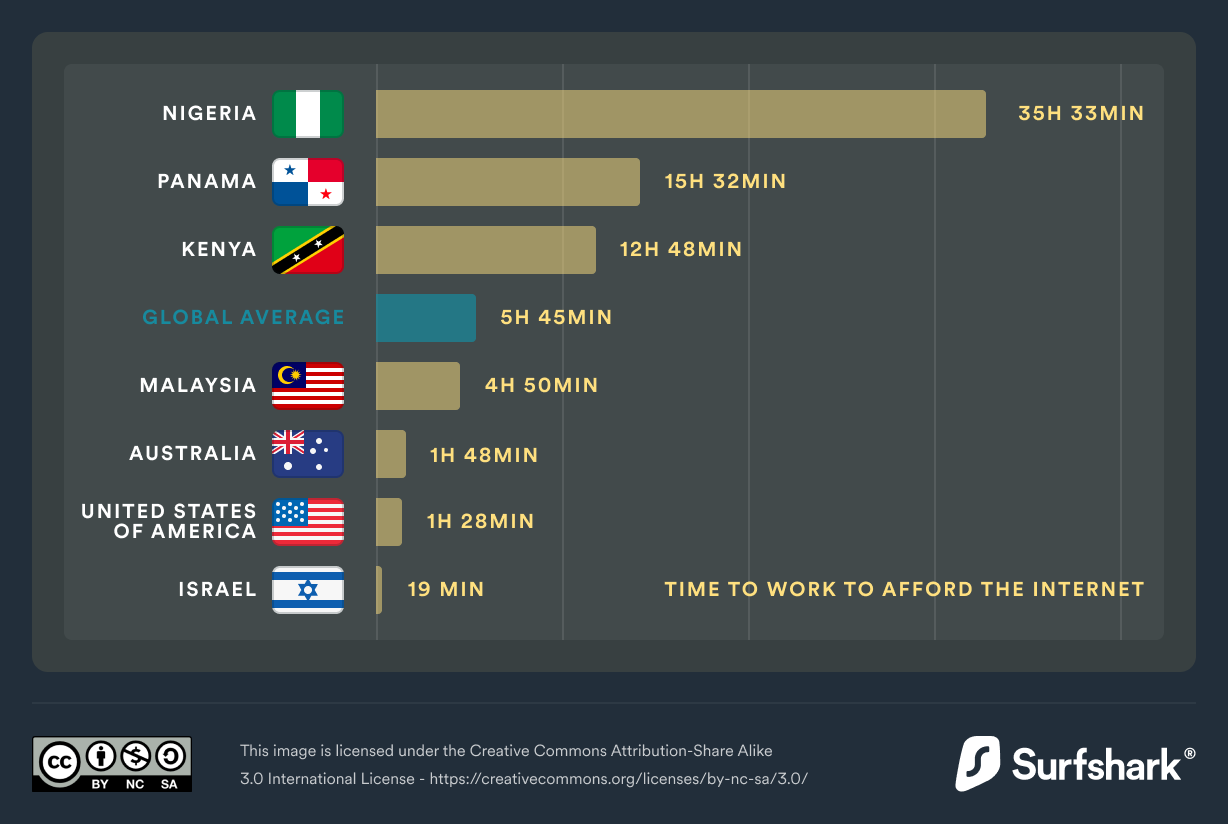4 takeaways from the 2021 Digital Quality of Life research
The Digital Quality of Life research focuses on the quality of digital wellbeing in 110 countries (90% of the global population). In its third edition, Nigeria ranked 82nd out of 110 countries.

In September, Surfshark --- a VPN service company based in the British Virgin Islands released the third edition of its Digital Quality of Life (DQL) research.
It covers 90% of the global population and indexes 110 countries by looking at five fundamental pillars of digital life – internet affordability and quality, e-infrastructure, e-security, and e-government.
Ranking 82nd in the world out of 110 countries, the global digital well-being study shows that Nigeria dropped by one place in the DQL ranking.
Despite the slight fall in the leaderboard, the country comes first in Western Africa and shows slightly better results in some pillars than the global average. Its e-security is among the top 50 worldwide, surpassing Africa's DQL leader South Africa.
Here are the four things that we learnt about Nigeria from the research:
- Nigeria lacks internet affordability
The study shows that Nigeria's internet affordability is 90% worse than the global average. According to Surfshark, users in Nigeria have to work the most time in the world – more than 35 hours – to afford the cheapest broadband internet.

- Nigeria has one of the worst e-governments worldwide
In the e-government category, Nigeria ranks 95 out of the 110 countries that were included in the research, falling behind African countries like; Senegal, Morocco, and Tanzania. In 2017, the National Information Technology Development Agency (NITDA) created the e-Government Development and Regulation department to facilitate digital transformation in the public sector and also enhance an enabling ICT regulatory environment that is highly friendly to Indigenous ICT growth, foreign investment and the general ICT industry development in Nigeria.
Aside from these functions, the department was saddled with a six-year goal to facilitate the development, implementation, compliance and enforcement of critical e-Government /IT regulatory instruments such as Policies, Standards, Guidelines, frameworks and regulations.
With about four years left to achieve this target, the research shows that the department has to buckle up its efforts.
- Nigeria’s e-security is slightly better than the global average
In e-security, the Digital Quality of Life research ranks Nigeria as the 46th in the world. To account for cybersecurity in each of the researched countries, the Global Cybersecurity Index (GCI), developed by the International Telecommunications Union (ITU), was used to assess cybersecurity and data protection laws.
Nigeria’s National Cybersecurity Coordination Centre (NCCC) through the National Cybersecurity Policy and Strategy (NCPS) 2021 intends to realign the nation’s cybersecurity efforts to effectively confront the dynamic and emergent nature of threats in the country’s cyberspace.
- Nigeria’s broadband speed growth is one of the fastest on the planet – ranks 16th worldwide
In January 2020, the Nigerian Communications Commission (NCC) announced an investment of N265 billion into revamping and building infrastructural fiber networks. As part of a new National Broadband Plan (NBP), the government will invest N65 billion, while six private internet infrastructure companies provided the remaining sum.
This research justifies that this investment that was geared towards laying 30,000km of fiber and achieving 70% broadband penetration by 2025 is on the right track.

Final thoughts
Surfshark said the study is ‘based on open-source information provided by the United Nations, the World Bank, Freedom House, the International Communications Union, and other competent sources’.
This result highlights critical areas that need urgent attention to ensure the effectiveness of the digital quality of life in the country. Concerned stakeholders will have to collaborate to ensure an improved quality of life.
Read the report here






